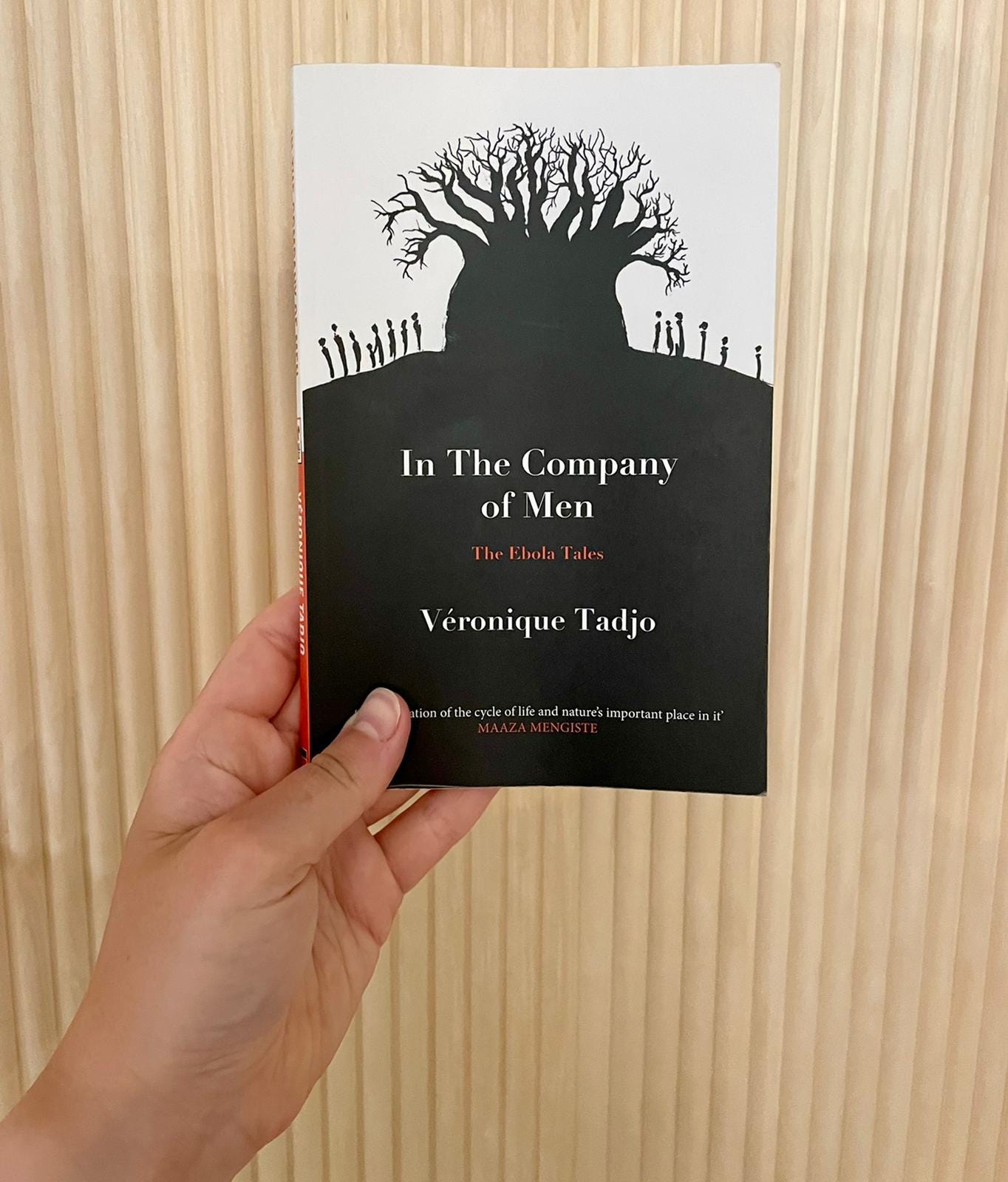Welcome to Bookmarked, a weekly newsletter following my journey as I read one book from every country. If you like the sound of my project, I’d love it if you shared Bookmarked with a friend.
It’s time for me to take a short break from writing this newsletter, but I’ll be back in your inbox as normal at the end of July. In the meantime, hit reply to let me know what you’re reading and have a lovely summer ☀️
Drawing on real life accounts of the Ebola outbreak that devastated West Africa in the mid-2010s, In the Company of Men by Véronique Tadjo is an artful, shattering, haunting story that speaks to the destructive powers of the epidemic. In just 133 pages, Ivorian author Tadjo weaves a sprawling narrative out of fictionalised testimonials, folklore, and poetry painting a picture of a truly devastating crisis.
With human tragedy at its centre, the book follows a wide range of narrators in an unnamed sub-Saharan African village, starting with a young girl whose parents send her away to avoid giving her the virus. In another chapter, two boys contract the virus after eating bushmeat on a hunting trip. When their parents fetch the local nurse, they’re told: “Whatever you do, stay away from your children. Don’t touch them, don’t dry their tears. Don’t take them in your arms. Keep your distance from them. You’re in serious danger.”
The book’s other narrators include a doctor who must treat patients without adequate protective equipment; a foreign NGO worker who becomes infected with the virus; and an ancient baobab tree who has watched over the village for generations. One of the book’s most interesting chapters is narrated by an outreach worker tasked with educating the public about the virus.
At the outset in the fight against Ebola, no one paid any attention to the traditional healers. Government bodies ignored them just as much as the NGOs and the health professionals. Considered ignorant and incompetent at dealing with the illness, they were accused of only making things worse. But despite all the efforts the scientists were making, the illness continued its rampage. What could be done? The specialists knew they had to rethink their strategy and get much closer to the people. Traditional healers share the population’s daily lives, their environment, their interests. They’re prepared to cover great distances on foot to visit a patient, and when they arrive, they’re not content just to treat the body; they care for the whole person.
So yes, we had to make an appeal to them!
In simple, unencumbered prose Tadjo humanises one of the worst epidemics of our time, paying tribute to those who don’t make it as well as those who must live with the trauma, including children who are orphaned from their parents because of the disease. Of course this book is difficult and distressing to read. But, in exploring people’s responses to tragedy, it’s so much more than a narrative about suffering and grief. Tadjo does a brilliant job of examining what happens when a country’s government is ill-equipped to deal with a deadly and highly-infectious epidemic, its healthcare workers are under resourced, and its people can’t comprehend what is happening.
The book ends with a horrifying final statistic: “28,656 people were infected and 11,323 people died.” Though Tadjo doesn’t draw direct comparisons with Covid-19, the contrast is stark and sobering. A phenomenally good read.
In the Company of Men by Véronique Tadjo, translated by the author with the help of John Cullen (Small Axes, 2021 / Don Quichotte Éditions, 2017)
More books by Ivorian authors
Here’s a short list of everything else I was recommended this week:
Akissi: Tales of Mischief by Marguerite Abouet, tr Judith Taboy and Marie Bédrune
Climbié by Bernard Binlin Dadié, tr. Karen C. Chapman
Allah is not Obliged by Ahmadou Kourouma, tr. Frank Wynne
Far from My Father by Véronique Tadjo, tr. Amy Baram Reid
The Shadow of Imana by Véronique Tadjo, tr. Véronique Wakerley
What have you read recently?
If you’ve read a brilliant book in translation or you’d like to pass on a recommendation, I’d love to hear about it! For this project, I’m focussing on contemporary fiction and short stories, with a preference for female authors—but I’m always happy to venture further afield for a good recommendation.
You can get in touch by replying to this email or leaving a comment. I’ll be featuring your recommendations in upcoming newsletters, and I’ll keep a growing list here.
Bookmarked is written by Tabatha Leggett. If you know someone who would enjoy this newsletter, please forward it to them!




